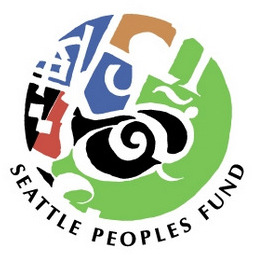10th ANNIVERSARY GATHERING
In April 2011, Seattle Peoples Fund hosted a Grantee Gathering to celebrate the 10th anniversary of our founding. This was the first convening of grantees since we began making grants in 2002.
It was an amazing day, filled with color, laughter and many moving moments. Fifty representatives from 29 grantee organizations participated, reflecting the richness and diversity of our region.
This was an opportunity for us to celebrate and honor the work of our grantees, to learn about the impact of their projects on their communities and to better understand the landscape they operate in.
ISSUES IMPACTING OUR GRANTEES
In order to understand the landscape our grantees operate in currently, we asked them to share with use the top issues their communities are currently facing. The themes that emerged are as follows:
Isolation and Lack of Unity
Grantees spoke universally about the sense of isolation felt by their communities, . There is a lack of communication across cultures. Some spoke to the lack of unity, both within their communities and in the external environment, while others talked about generation gaps present between youth and elders.
Education
This emerged as a dominant issue. Grantees felt that the school system was not meeting needs of communities. Schools need to be more accountable to parents and parents need to have more ownership in schools. Parents are struggling, need to be more engaged in their children’s education and to learn how to interact with the school system so they can better advocate for themselves. There is a lack of quality bilingual programs, and cultural competency is an ongoing issue.
Youth
There was overwhelming concern about youth being disengaged, disenfranchised and isolated. Immigrant and refugee communities shared their concerns about their youth losing connections to the community’s language and culture. The generation gap between elders and youth, the residual tensions inherent in the ways of the home country as opposed to contemporary American culture, the issue of identity were shared concerns.
Jobs & Economy
The economic downturn has impacted communities harshly. Foreclosures, unemployment, cuts in welfare, lack of economic opportunity and mobility, training opportunities and resources were high on the list. For refugees and immigrants in particular, there were additional barriers - while individuals may be highly skilled in their home countries, their limited English proficiency leads to low paying, off hour jobs, and often language is a barrier to training and getting jobs. Entrepreneurship is challenging for refugees and immigrants because of the difficulty in accessing loans and lines of credit.
Anti Immigrant Sentiment and Immigration System
Grantees spoke of anti immigrant sentiment as being very damaging to their psyches. Profiling and backlash, government abuse of power, harsh deportation measures and a broken immigration system have significantly impacted the lives and livelihoods of many immigrants and refugees. There is a tremendous amount of fear residing in many communities as a result of this.
Refugee Community Needs
There is a great diversity of needs within refugee communities. Refugee communities are often small insize but have great needs, and there is a lack of cohesive vehicles to address refugee community needs. Often, newly arrived refugees are in crisis, and the lack of consistent support and adequate funding exacerbates their crises. The government support for newly arrive refugees is not adequate to support families. Policy changes are needed to address these issues.
Violence
For many grantees, violence is a grave concern. Gang violence is on the rise, and youth involvement in gangs has increased substantially in this region. Domestic violence is an ongoing issue in all communities.
Cultural and Language Barriers
Language in particular was seen as a significant barrier to accessing services and resources. Lack of understanding and openness to cultural values and traditions by mainstream systems was seen as a barrier as well.
Funding
Lack of funding in general was seen as a limitation to effectively serving communities. There is not enough money to support community needs, youth needs and needs of families with disabilities, both within nonprofit organizations providing these services and within government systems.
Other Issues
Other issues raised were gentrification, sustainability, lack of access to transportation, politics (regional and global), institutional interference, and lack of leadership.
